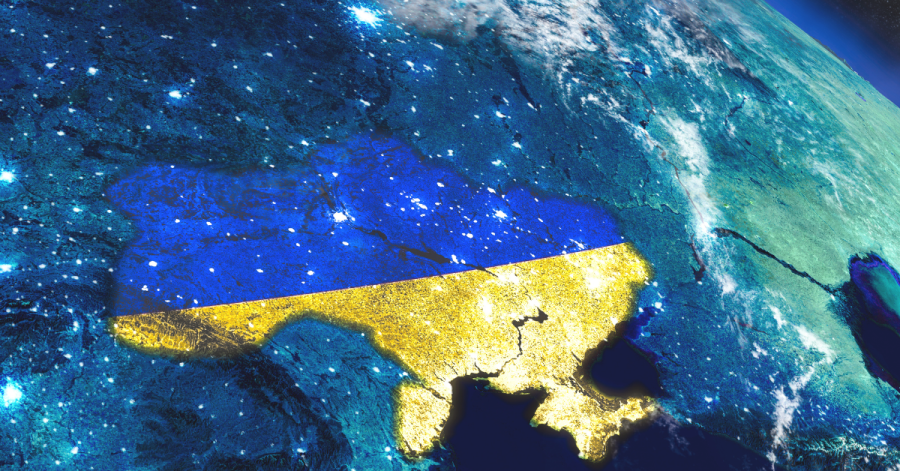Today marks the third anniversary of Russia’s full-scale invasion of Ukraine, 36 months after the peace in Europe was broken. With the US currently involved in negotiations with Russia, both countries remain focused on solutions that align with their own interests, leaving Europe behind and in need for a resolution, while the conflict seems set to continue.
The invasion has raised major security concerns across Europe. Following the recent elections in Germany on Sunday, Friedrich Merz, the leader of Germany’s Christian Democratic Union (CDU) and the presumptive Chancellor, has expressed significant concerns about Europe’s security stability and the reliability of the United States under President Donald Trump. In a televised interview, Merz emphasized the necessity for Europe to strengthen its defenses and reduce dependence on the US, stating: “My absolute priority will be to strengthen Europe as quickly as possible so that, step by step, we can really achieve independence from the USA.”
Today, Ukraine hosted European leaders to mark three years of full-scale war with Russia. Senior US officials avoided attending, highlighting President Donald Trump’s increasing alignment with Moscow since returning to power.
History of the war through the perspective of the innovation ecosystem
The Russian aggression that began in 2014 and escalated into a full-scale invasion in 2022 had a devastating impact on the lives of Ukrainians and the country’s business landscape.
Despite the ongoing difficulties, the Ukrainian economy has not collapsed. Moreover, startups have shown resilience and have adapted to the war while maintaining operations in the country. There are now over 2,600 active Ukrainian startups, with valuations tripling since 2020.
According to the Polish-Ukrainian Startup Bridge report, startups’ main difficulty nowadays is not having access to finance or investment capital. Despite facing funding cuts from venture capital firms, these startups have implemented bootstrapping strategies.
According to the report, 90% of startups see high growth potential in the future, while 46% of startups, despite the war, still believe that the ecosystem operates at the average level.
“The socio-economic situation in Ukraine has stabilized to some extent, new value creation chains have been established. Most of those who were able to leave the country in the first 9 – 12 months have already settled in new locations, and those who were not able (or not willing to) adapt had returned home,” said Mykhailo Khaletskyi, External Expert and Jury Member at Ukrainian Startup Fund.
“IT companies – both service and product-focused – were also able to distribute staff in such a configuration as to maximize their utility towards the business goals,” he added in the report.
Despite all the hardships that the country and its people are facing on a daily basis, business and IT industries of Ukraine continue to work and scale. According to UkraineInvest, the IT sector grew from 4.5% of GDP in 2021 to 6% in 2024.
“The IT sector is one of the few industries remaining afloat following the full-scale invasion. Thousands of IT professionals are working through blackouts and airstrikes, maintaining Ukraine’s reputation as one of Europe’s top countries for IT services,” shared Alexandra Govorukha for The Recursive. Govorukha is Head of Global Affairs at Sigma Software Group and Ambassador of IT Ukraine Association in the UK.
Leading growth in CEE
Ukraine’s startup ecosystem ranks among the top three fastest-growing in CEE and is the fourth largest by ecosystem value, according to the 2024 ecosystem report by Civitta.
Several Ukrainian-founded startups, including Grammarly, GitLab, and Creatio, have reached unicorn status despite the ongoing war. According to the report, at least 10 other startups are also approaching this milestone.
In terms of most active sectors, it is not surprising that Ukrainian startups operating in a war-torn country have risen in defense tech. The niche is actively funded by the government through the launched BRAVE1 cluster and by non-governmental organizations from Ukraine and other countries. Specifically, between 2023 and 2024, a total of $42 million was allocated in the form of investments or grants.
“It’s evident that the defense tech niche stands out not only on Ukraine’s startup ecosystem map but also worldwide. $5.2 billion in VC funding, +30% growth in two years, and NATO backing over $1 billion with NIF in deep tech investments — the defense tech boom is here, and it’s real,” explained Govorukha.
The current global situation will continue to impact the business and innovation ecosystem not only in Ukraine but also in Europe. Yet, the resilience demonstrated by Ukrainian startups remains crucial for future development.
“In Ukraine, we are already ahead because, for us, innovation is a matter of survival,” concluded Alexandra Govorukha.








